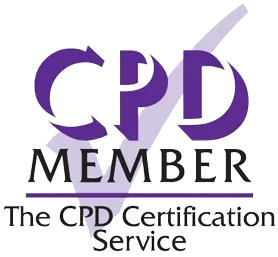29 Mar 2025
Recommended
Minimum 30 mins
Course
Access
Certification
Voiceover

Menopause is a significant life transition for women, marked by diverse physical, emotional, and psychological changes that can profoundly affect health and quality of life. The Menopause Awareness course equips healthcare professionals with the knowledge and skills necessary to understand and manage menopause effectively.
Aligned with the latest UK guidelines and best practices, this course explores the physiological changes and stages of menopause, common symptoms, and long-term health implications such as osteoporosis and cardiovascular risks. It provides a comprehensive overview of non-pharmacological and pharmacological management strategies, including lifestyle modifications, cognitive-behavioural therapy (CBT), hormone replacement therapy (HRT), and non-hormonal options. Special topics such as premature menopause, menopause in women with chronic conditions, and the influence of cultural factors are also discussed.
By focusing on personalised, patient-centred care, this course empowers participants to provide effective communication, tailored interventions, and compassionate support, enhancing the wellbeing and dignity of women navigating menopause.

 £25
£25
Learning Outcomes.
By the end of this course,participants will be able:
To define the stages and physiology of menopause, including hormonal changes, epidemiology, and progression.
To identify common symptoms and long-term health risks associated with menopause, such as osteoporosis and cardiovascular disease.
To conduct comprehensive assessments using clinical evaluation tools and diagnostic methods.
To implement non-pharmacological approaches, including lifestyle changes, CBT, and complementary therapies, to manage symptoms.
To evaluate and personalise pharmacological treatments, including HRT and non-hormonal options, based on individual patient needs.
To address special considerations such as premature menopause, chronic conditions, and cultural influences, using effective communication strategies.
Course
Contents.
01
Definitions, stages, physiology, and epidemiology.
03
Comprehensive clinical evaluations, laboratory testing, and symptom impact assessments.
05
HRT, non-hormonal options, and personalised therapeutic plans.
08
Premature menopause, chronic health conditions, and cultural perspectives.

06
Osteoporosis, cardiovascular risks, and urogenital symptoms.
09
Strategies for effective communication and empowering patients.
02
Common symptoms, long-term health implications, and differential diagnosis.
04
Lifestyle interventions, behavioural therapies, and complementary approaches.
07
Addressing psychological symptoms and promoting emotional wellbeing.
10
Innovations and future directions in menopause management.
This course provides healthcare professionals with the essential knowledge to understand, assess, and manage menopause effectively. By addressing symptoms, long-term risks, and unique patient needs, it promotes holistic, patient-centred care. Participants will gain the skills to enhance health outcomes, improve quality of life, and support women through this critical life transition with dignity and empathy.
 Summary
Summary


